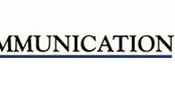

|
|
| Learn what to say... and what NEVER to say! |
|
|
Our PIE Model of Communication
|
Get the Message! 8 Ways to Dramatically Enhance Your Listening Skills By Edward Leigh, MA We were given two ears but only one mouth. This is because God knew that listening was twice as hard as talking. Effective listening is a critical skill in a workplace environment. After all, lack of attention to workplace listening can be costly - leading to mistakes, poor service, misaligned goals, wasted time and lack of teamwork. We must be able to successfully listen to what others are saying and with proper practice of a few key activities we could become better communicators. View listening as a challenging mental task. You must concentrate on what is said so that you can process the information. Listening is an active technique, not a passive process. Pay attention to nonverbal cues, in addition to listening carefully to the words people are saying. Does the person seem relaxed or tense? People could lie with words, but body language often reveals their true feelings. A person could be sitting slumped at their desk looking sad, but say they are fine. Effective listening is not waiting for the other person to finish talking so you can start speaking. I have engaged in many conversations with people where they never respond to what I said. They just wait for me to finish so they could continue on with their thoughts. They are engaging in a monologue, an effective interaction is a dialogue. Listen for both facts and feelings. As with nonverbal cues, determine how the person is feeling via voice inflections. The emotional triggers provide a great deal of information as to what the person is experiencing. Don't just listen with your ears, listen with your entire body. When listening to someone talk, look at them in the eyes and face them shoulder to shoulder. Make them feel like they are the only person that matters at that moment. Twisting your head around at your desk while trying to do other activities is not a productive way to listen to other people. During the conversation, offer verbal and nonverbal clues to let the person know you are actively engaged in the exchange, such as nodding your head. After the person has spoken, repeat back to be sure of understating. This activity will help clarify and avoid potential miscommunication. To say "I understand" is not sufficient. People need proof of understanding, such as by occasionally restating the gist of their idea or by asking a question, which proves you are following the main subject. Focus on content, not delivery. The person who you are listening to may have an accent or a speech impediment, but that is not an issue. What we must focus on is the substance of their message. Be conscious of the gap between the rate of speech and rate of thought. You can think faster than the person speaking. That's one reason your mind may tend to wander. All the above suggestions will help you keep your mind occupied and focused on what is being said. Practicing these skills will dramatically improve your communication with other people in the workplace. These strategies are "life skills" that also work in other environments, such as interactions with friends and family members. All your relationships are strengthened! |
The Center for Healthcare Communication • P.O. Box 18819 • Cleveland, Ohio 44118-0819 USA Site designed by I Am Orange Media Group |